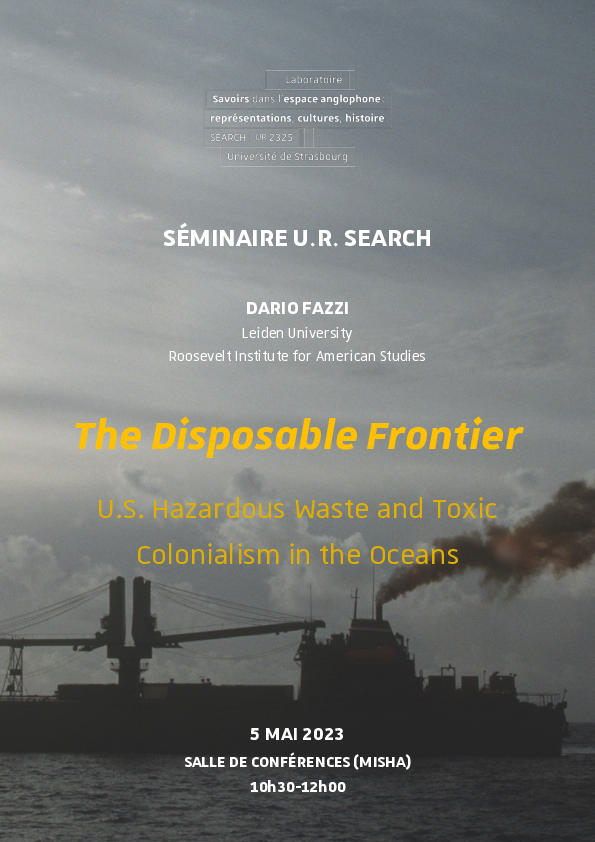Dario Fazzi, Leiden university / Roosevelt Institute for American Studies
"The Disposable Frontier: U.S. Hazardous Waste and Toxic
Colonialism in the Oceans"
This talk focuses on the dire legacy of U.S. hazardous waste management in the world’s oceans. From the mid-1970s onward, the U.S. federal government launched a series of programs that were meant to guarantee the safe disposal of a staggering and ever-increasing amount of domestically produced hazardous chemical wastes. The U.S. government outlawed indiscriminate dumping of toxic waste in the oceans domestically and engaged in multilateral discussions to ban the practice at the international level too. Subsequently, Congress and the EPA set up a system that was supposed to identify and follow hazardous wastes throughout their life-cycle – “from cradle to grave” as the U.S. authorities liked to say. The implementation of such a varied policy, however, failed to achieve adequate standards for the protection of marine and coastal socio-ecological systems. Rather, it favored the installment and replication of a number of exploitative, neoliberal and indeed imperial practices that transformed the oceans into America’s disposable frontier, a supposedly empty and self-healing space to be bent to the exigencies of the ever-influential U.S. military-industrial complex. The talk will highlight the causes and consequences of this changing relationship between the U.S. and the seas, the role that an out-ofcontrol hazardous waste crisis played in it, and the many forms of socio-ecological resistance that tried to curb the harmful watery expansion of the U.S. empire.
